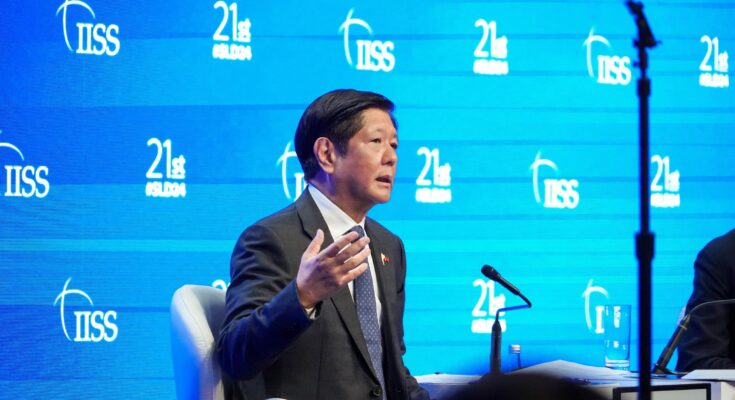THE killing of a Filipino in the West Philippine Sea (WPS) amid escalating tensions would be very close to an “act of war,” President Ferdinand Marcos Jr. said.
During the question-and-answer portion of the 21st International Institute for Strategic Studies (IISS) Shangri-La Dialogue in Singapore on Friday, Marcos said the Philippine government would act accordingly if tensions in the disputed waters and China’s aggressive actions, such as the use of water cannons, result in the death of a Filipino citizen.
“What would happen if there was an incident that ended up killing a Filipino serviceman, be it a Coast Guard or in the military and part of the Navy. Well, that would be – that would certainly increase the level of response and if by a willful act on a Filipino, not only serviceman but even a Filipino citizen. If a Filipino citizen is killed by a willful act, that is I think a very, very close to what we define as an act of war and, therefore, we will respond accordingly,” he said.
Marcos made the remark when asked what actions would trigger the Philippine government to invoke the decades-old Mutual Defense Treaty with the United States.
He noted that such incidents would increase the level of response not only from the Philippine government but also from its “treaty partners.”
“We already have suffered injury, but thank God, we have not yet gotten to the point where any of our participants, civilian or otherwise, have been killed,” the President said.
“But once we get to that point, that is certainly we would have crossed the Rubicon and certainly crossed the Rubicon. Is that a red line? Almost certainly it’s going to be a red line.”
Marcos made history as the first Philippine leader to deliver a keynote address before the IISS Shangri-La Dialogue, the leading defense and security conference in the Asia-Pacific region.
In his speech, he reiterated that he will not give up a single inch of the nation’s sovereign rights and jurisdiction over the WPS as it is the lifeblood of every Filipino. (PNA)





